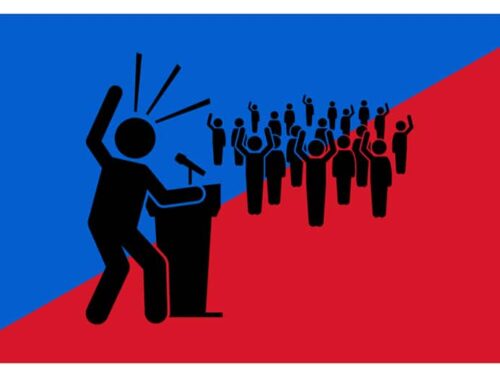
We’ve all worked with or for these folks because our workplaces are filled with them…
- The manager who thinks they know everything but hasn’t a clue about how to manage their team.
- The newly promoted boss who is the go-to subject matter expert but doesn’t know how to delegate or give feedback, so they either micromanage everyone, or do everything themselves, or both.
- The manager who says, “I don’t have time for warm and fuzzies, people just need to do their jobs.” And,
- The leader who says, “I don’t need leadership training, I’m doing fine.”
The truth is these are common examples of leaders who lack soft skills – also known as “people skills”. And very often, they don’t know it.
So, if you work with or for one of these people, and you want to tell them this truth, get them to acknowledge reality and agree to get soft skills training, then you’re going to need some courage, and some things you that you can say that will actually work.
Today, five different generations are present in the global workforce with Millennials and Gen Z making up nearly 40%, rising to 58% by 2030 (Source: PWC). A significant majority (60% in the US) are “knowledge workers”: professionals who are educated, independent, and have an expectation that they’ll be treated with respect. They’re also more diverse in every way than ever before. From nationality, race, and religion, to education, experience, culture, and problem-solving skills – you name it, our teams are made up of very unique and different people.
This means that it’s imperative our managers and supervisors have the soft skills they need to manage their teams effectively, to be able to give feedback efficiently while handling defensiveness, reducing conflict, increasing psychological safety, and creating an environment where people are genuinely eager to do their jobs to the best of their ability.
According to Harvard University in conjunction with the Carnegie Foundation and Stanford University, 85% of job success comes from having well‐developed soft skills. Only 15% of job success comes from technical skills and knowledge. And 63% of those who received soft skills training say it positively impacted their performance. But only 35% of companies offer any kind of soft skills training at all.
So, the business case for soft skills training is as clear as can be. But telling someone – especially someone who thinks they don’t need it – isn’t easy.
Here are three tried-and-true approaches you can use to tell someone they need soft skills training. But, before you say anything, make sure you’ve identified a program that you believe will be a good fit for them and the organization’s needs. (We, at the Center for Respectful Leadership, believe we’ve got the best one available anywhere, it’s called The R-Factor Workshop).
1 – Use Genuine Compliments First. People love to be complimented on being good at something because it triggers the release of so-called, “feel good” hormones in the brain. So, begin the conversation about the need for soft skills training with a genuine and sincere compliment, such as, “I know you’re really good at XYZ, and how much you’re contributing to our success…” and then follow it with another, more specific compliment about self-development, i.e. “And I know you’re always trying to develop your skills. We’ve found a professional development program that we think you’ll find really helpful and practical.”
2 – Substitute “And” for “But.” If you give someone a compliment and then follow it with the word “but,” you’ll negate everything you’ve just said. They’ll interpret the compliment as nothing more than your way of buttering (pun intended) them up before you give them bad news.
However, if you substitute the word “and” for “but” you’ll find they’re much more likely to be receptive to your recommendation. For example, “You’re our go-to person around here on XYZ, and that really makes a heck of a difference. AND we want you to continue to develop your skills so you can continue being successful. So, we’ve identified a learning opportunity for you that we think you’ll find useful and helpful.”
3 – Be Respectfully Direct. Many managers who claim they don’t need soft skills training are hard drivers, so-called “Type A” personalities who consider themselves “tough” and “thick-skinned” (and assume everyone else should be just like them). They like to take charge, move fast, make hard decisions, get s**t done and deliver results. This is why they’re often promoted into leadership roles.
But being kind, respectful, compassionate, supportive, and flexible aren’t necessarily priorities for them, and emotional intelligence or psychological safety just sound like a bunch of HR buzzwords. This is why many people find it so hard to work for Type A’s: they don’t seem to know (or care!) about how they tend to leave a trail of bruised and broken people in their wake. And in their minds, they’re valued by leadership for getting stuff done, not for being “nice.”
The interesting thing about this type of manager is if you language the recommendation skillfully, you can be bracingly blunt with them about their need for soft skills training. The trick is to deliver the news in ways they consider to be respectful, and focus on appealing to what they value most – brevity, success, and achievement.
So, here’s what you can say…
“[name], I respect you for your drive and ability to get stuff done. I also know that you value direct communication, and that you appreciate it when people don’t waste your time by beating around the bush when they need to tell you something. Am I right about that? (They will almost always say ‘yes.’)
So, I’m going to be respectful and direct with you: if you want to continue to be successful, then you’re gonna need to develop your people skills. AND we’ve identified a way for you to do that.”
ONE MORE ADD ON APPROACH: Talk about the real “benefits” they’ll get from soft skills training. For example, after you’ve used one or more of the approaches outlined above, you might say, “I know you’re frustrated with some of the folks on your team who aren’t meeting your goals or standards. This program will make it easier for you to get their performance back on track.” Or “I know you’re looking to get promoted. Taking a soft skills training program is going to make that more likely, and maybe even sooner.”
Obviously, aggressively beating someone up for not having good people skills will most likely cause defensiveness and no change in behavior. It could also trigger retaliation. This means that the approaches I’ve outlined above require courage, patience, and compassion. And you might want to practice them with a trusted colleague in role-play before you dive in.
Bottom line: when telling someone that they need soft skills training, do your utmost to communicate using The Platinum Rule: do unto others as they would have you do unto them. In other words, tell them they need soft skills training in ways that they want to be told and will be able to hear it, and that still makes them feel respected.
PS Are you looking for the best, most cost-effective soft skills training available anywhere? Want it to be virtual and not take up a ton of time? We have a solution! It’s called The R-Factor Workshop and takes place over two half-days, back-to-back, live over Zoom for small groups. Participants have called it “the best leadership training, ever.” Register before December 31st to receive a massive 30% discount! Previous and current clients receive an additional 10% discount!!




